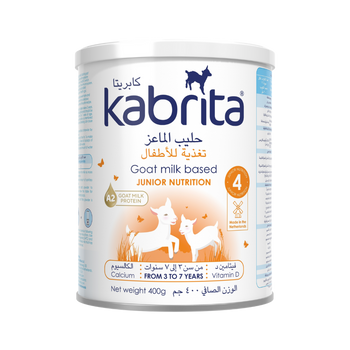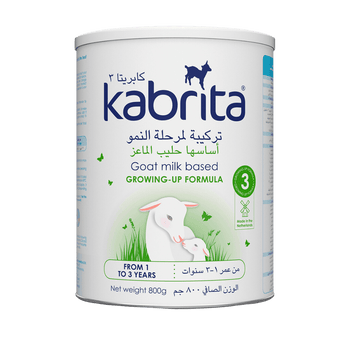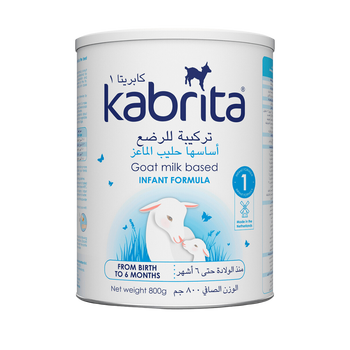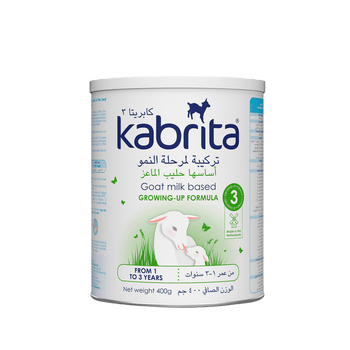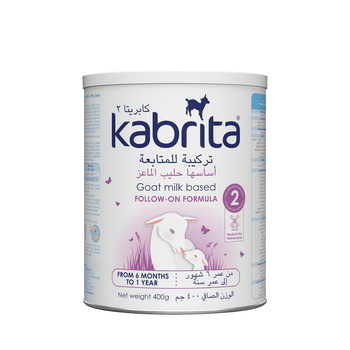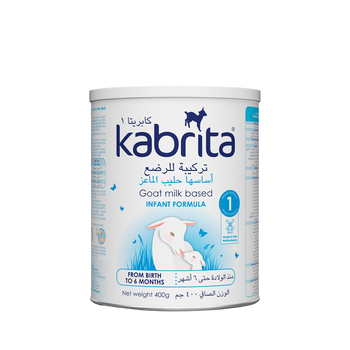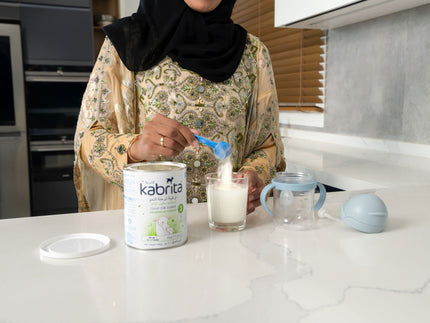The Benefits of Breastfeeding for New Moms and Babies

If you're contemplating not breastfeeding your newborn, you might be overwhelmed with information. Ultimately, it's a personal choice that only you can make, but the advantages are numerous.
To assist you in your decision-making process (or to provide reassurance if you've already chosen breast milk), let's explore the myriad benefits of breastfeeding for both you and your baby.
Breast milk offers optimal nourishment for infants, containing the right balance of nutrients that are easily digestible and readily available. Some experts recommend exclusive breastfeeding for six months, and continuing after introducing formula and solid foods as well.
The World Health Organization (WHO) suggests breastfeeding until the age of two, as the benefits of breastfeeding for child development extend throughout that period. The frequency of breastfeeding depends on your baby's preference for either small, frequent meals or longer feeding sessions, which will change as your baby grows. Newborns often require feeding every 2-3 hours, while by two months, feeding every 3-4 hours is typical, and by six months, most babies feed every 4-5 hours.
Ultimately, the decision to breastfeed is a personal one, taking into account the uniqueness of you and your baby.
Benefits of Breastfeeding for Babies
1. Breast milk offers optimal nutrition for infants
The general consensus among healthcare professionals is to exclusively breastfeed for a minimum of 6 months, or even longer. Breast milk contains all the necessary nutrients, in the appropriate proportions, to meet a baby's needs during the first 6 months of life. Its composition adapts to the changing requirements of the baby, particularly in the initial month.
In the early days after childbirth, your breasts produce a thick, yellowish fluid called colostrum. This substance is rich in protein, low in sugar, and packed with beneficial substances. It is truly a remarkable food source that cannot be replaced by formula. Colostrum serves as the perfect initial milk, aiding in the development of the newborn's immature digestive system. The more milk the baby drinks and longer feeding times become, the more the mother's breasts begin to produce milk after the first few days to accommodate this.
2. Breast milk contains essential antibodies
Breast milk is abundantly enriched with antibodies that play a crucial role in helping your baby combat viruses and bacteria, particularly during the delicate early months. This is especially true for colostrum, the initial milk produced. Colostrum delivers substantial amounts of immunoglobulin A (IgA) and various other antibodies.
When you are exposed to viruses or bacteria, your body generates antibodies that are then transferred to the milk. This is one of the essential health benefits of breastfeeding as antibodies act as a natural immunity boost for your baby. IgA specifically safeguards the baby against illness by creating a protective barrier in the nose, throat, and digestive system.
3. Breastfeeding may decrease the risk of diseases
Exclusive breastfeeding, where the baby receives only breast milk, offers significant advantages. It can potentially lower the baby's risk of various illnesses and diseases, including:
- Infections: Breastfeeding, especially when practised exclusively and for an extended period, has been shown to provide protection against various infections. This includes middle ear, throat, and sinus infections, respiratory tract infections, colds, ear or throat infections, and gastrointestinal infections.
- Intestinal tissue damage: Feeding preterm babies breast milk has been linked to a decrease in the occurrence of necrotizing enterocolitis.
- Sudden infant death syndrome (SIDS): Breastfeeding is connected to a reduced risk of SIDS, especially when practised exclusively.
- Allergic diseases: Breastfeeding is associated with a decreased risk of asthma and eczema.
- Bowel diseases: Babies who are breastfed may have a lower likelihood of developing Crohn's disease and ulcerative colitis.
- Diabetes: Breastfeeding is linked to a reduced risk of both type 1 and type 2 diabetes.
- Childhood leukaemia: Breastfeeding is connected to a lower risk of childhood leukaemia.
4. Breast milk supports healthy weight in babies
Breastfeeding plays a role in promoting healthy weight gain and reducing the risk of childhood obesity. This could be attributed to the cultivation of different gut bacteria. Breastfed infants tend to have higher levels of beneficial gut bacteria, which can impact fat storage.
Breastfed babies also have higher levels of leptin, a vital hormone that regulates appetite and fat storage, compared to those fed formula. Additionally, breastfed infants have a natural ability to self-regulate their milk intake. They instinctively consume only until they feel satisfied, fostering healthy eating patterns as they grow.
5. Breastfeeding may contribute to enhanced cognitive abilities in children
Breastfeeding has been associated with potential cognitive advantages, as indicated by certain studies. The physical closeness, touch, and eye contact, along with the nutritional content of breast milk, could account for these psychological benefits of breastfeeding.
Research has shown that breastfed infants tend to have higher intelligence scores and are less likely to encounter behavioural or learning difficulties as they progress into later stages of childhood. Notably, the most notable effects are observed in preterm infants, who are at a higher risk for developmental challenges.

Benefits of Breastfeeding for Mothers
1. Breastfeeding may contribute to postpartum weight loss
You may be familiar with the notion that breastfeeding can aid in weight loss. While some women appear to gain weight during breastfeeding, others effortlessly shed pounds.
It is true that breastfeeding burns more calories, and after three months of lactation, you are likely to experience an enhanced fat-burning effect compared to non-lactating mothers. However, it is important to note that the difference in weight loss may not be significant.
2. Breastfeeding aids in uterine contraction
Throughout pregnancy, your uterus undergoes significant growth, expanding from the size of a pear to occupying most of your abdominal space. After childbirth, a process called involution occurs, which allows the uterus to return to its original size. This process is facilitated by the hormone oxytocin, which gradually increases during pregnancy.
During labour, your body releases oxytocin in high amounts to assist with the delivery of the baby and reduce bleeding. It also plays a role in fostering the bond between you and your newborn. Oxytocin levels continue to rise during breastfeeding. This hormone stimulates uterine contractions and reduces bleeding, facilitating the uterus's return to its pre-pregnancy size. Research has indicated that breastfeeding mothers tend to experience less postpartum blood loss and a faster involution of the uterus.
3. Breastfeeding reduces the risk of postpartum depression in mothers
Postpartum depression (PPD) is a form of depression that can occur shortly after giving birth. According to a study conducted in 2012, breastfeeding appears to lower the likelihood of developing postpartum depression compared to early weaning or not breastfeeding at all.
However, it is worth noting that mothers who experience postpartum depression in the early stages after delivery may also face challenges with breastfeeding and tend to breastfeed for a shorter duration. If you experience any symptoms of PPD, it is important to promptly inform your doctor for appropriate support and guidance.
4. Breastfeeding lowers the risk of diseases
Breastfeeding appears to offer long-term benefits, providing protection against cancer and various diseases. The duration of breastfeeding is associated with a decreased risk of breast and ovarian cancer in women. Additionally, women who breastfeed have a reduced risk of developing high blood pressure, arthritis, elevated blood fats, heart disease, and type 2 diabetes.
5. Breastfeeding can delay the return of menstruation
In addition to its other benefits, continued breastfeeding can temporarily suppress ovulation and menstrual cycles. This natural interruption of menstruation serves as a means of spacing out pregnancies. This change can be seen as an added advantage, providing you with one less concern to worry about while you cherish the special moments with your newborn.

Common Breastfeeding Misconceptions
Breastfeeding experiences can vary for each individual, and it is natural to encounter challenges along the way. Amidst the abundance of information available, it is inevitable to come across misconceptions that may instil fear regarding breastfeeding. However, here are a few common misconceptions about breastfeeding that you can put to rest and ease your mind.
Breastfeeding should not be painful, but it's normal for breasts and nipples to feel tender during the initial days as you adjust to nursing. If you experience any discomfort, consult a lactation expert for assistance with latching and breastfeeding positions.
In the first few days, the milk produced is known as colostrum or "liquid gold." Despite its small volume, this milk is rich in nutrients, providing everything your baby requires. Nursing whenever your baby is hungry not only guarantees their adequate nourishment but also aids in the development of your milk supply.
While many women aim for exclusive breastfeeding, circumstances can lead to changes in plans. Introducing formula into your baby's diet doesn't mean you have to stop breastfeeding. Collaborate with your paediatrician to determine the right amounts of breastmilk and formula for your baby's growth in the first year, as every ounce counts!
Up to 80 percent of new mothers experience feelings of sadness, stress, and being overwhelmed after giving birth, known as "the baby blues." Symptoms may include reduced appetite, irritability, and anxiety. Typically, these symptoms improve naturally within the first two weeks. Postpartum depression, caused by hormonal changes, sleep deprivation, and the challenges of parenthood, can be effectively addressed through medication and counselling options that are safe for breastfeeding.
While new teeth can be a concern for breastfeeding mothers, not all babies bite while nursing. Typically, a bite indicates that the feeding has finished. It's important to note that a baby cannot bite while actively breastfeeding. Once your baby has finished nursing, gently remove them from the breast. If they do bite, remain calm, unlatch, and softly say no. Overreacting may pique curiosity and encourage repetition.
Conclusion
Breast milk is a complete source of nutrition for your baby, offering a specific blend of vitamins, minerals, and antioxidants. Breastfeeding also fosters a special bond between you and your baby, enhancing both physical and emotional connection. This bonding experience is believed to contribute to reduced social and behavioural issues in children and adults. Additionally, breastfeeding offers various benefits for you as a mother as well, including facilitating postpartum weight loss, parental responsiveness to your baby's cues as well as for building trust.
Making the decision of whether to breastfeed your baby is an important consideration for all parents. It is crucial to take the time to understand the ways in which breastfeeding can benefit your baby. Breast milk, being easily digestible and packed with all the necessary nutrients, provides optimal nourishment for your little one. It is essential to recognize that not everyone is able to fully breastfeed or breastfeed at all, and that is perfectly okay.
There are numerous formula options available that can adequately support your baby's growth and development. Ultimately, the well-being and growth of your baby can be achieved through breastfeeding or nutrient packed formula, allowing you to make the best choice for your little one.
